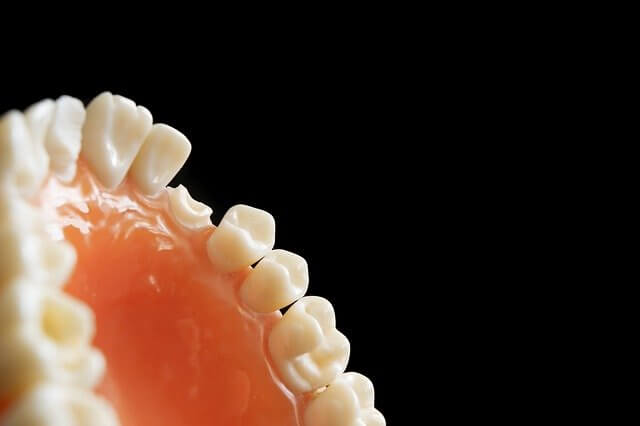When people think about doctors, they know there are different types. For example, you would not go to an OB/GYN for heart problems. The same is true with a dentist. While a general dentist can handle most common dental concerns, specialty dentists treat specific dental issues. Knowing what the different types of dentists are can help you determine which one you may need in order to get the best dental care.

Why Are There Different Types of Dentists?
Similar to medicine, different types of dentists treat specific conditions. While every dentist can practice as a general dentist, some decide to go into specialty treatments. These treatments can include things like braces and tooth alignment, pediatric dentistry, replacement dentistry, major dental surgery, and specific gum care. When you see your general dentist for routine care, they may recommend or refer you to a specific dentist for specialized care.
Different Types of Dentists
When it comes to dentists, there are seven main types. Let’s take a closer look at each type and how they provide specialized care.
General Dentists
A general dentist is the one you are likely to see on a regular basis. They offer general and routine dental care, such as dental cleanings and routine exams. In addition, they also provide emergency care, fillings, tooth repair, crowns, bridges, and veneers. General dentists also perform oral cancer screenings and gum disease treatments.
General dentistry is the most common form of dentistry and the one that most people see for initial treatments. Should you need specialty care, your general dentist is the one that often refers you to a specialist.
Pedodontists
Pedodontists, or pediatric dentists, specialize in children. While dental care is safe, it can often be intimidating for children, leading to increased anxiety. Pedodontists understand the different challenges working with children can create, such as anxiety and different dental needs. Sedation is different for children, and these dental specialists cater to that. In many cases, pedodontists also treat older patients with special needs as well.
Orthodontists
Orthodontists are commonly thought of as the dentists that provide traditional braces and invisible braces to straighten your teeth and improve your smile. However, they now do much more than that. While misaligned teeth may make your smile imperfect, they can also contribute to biting and chewing problems, as well as jaw and neck conditions such as TMD (temporomandibular joint dysfunction) and TMJ (temporomandibular joint).
Oral Surgeons
Oral surgeons are best known for wisdom tooth extractions, especially in cases where the wisdom teeth are impacted. In addition to these extractions, oral surgeons perform other complex oral surgeries that can correct misaligned jaws, facial trauma due to an accident, dental implants, TMD surgeries, bone grafts, and oral biopsies to look for oral cancer. In many cases, these dental specialists work closely with ENT (Ear, Nose, and Throat) physicians.
Endodontists
When a cavity or a trauma affects the pulp inside a tooth, it leads to nerve damage and death, often leading to infection. When this occurs, a root canal is necessary. While a general dentist can perform root canals, endodontists specialize in this procedure. They use specialized tools to drill a small hole in the top of the tooth and remove the dead and infected tissue. Once removed, they fill the small dental canals with a specialized rubber material to prevent bacteria from entering and further damaging the tooth. A temporary filling goes into place until a crown is made.
In cases where a damaged tooth continues to be infected, endodontists can perform a specialized surgery called apicoectomy. This procedure removes the root end, or tip, to help stop the infection.
Periodontists
Periodontists focus on the treatment of gums. They focus on the prevention of gum disease, as well as treating gum disease and periodontal disease. In many cases, this can include treatments such as skin grafting. These dentists work closely with general dentists to help prevent gum disease and create treatment plans when gum disease occurs.
Prosthodontists
Prosthodontists specialize in making oral prostheses to replace broken or damaged teeth, improving both cosmetic improvement and dental function. Oral prostheses include crowns, bridges, veneers, dentures, and implants. Prosthodontists work closely with general dentists and endodontists in order to provide these dental appliances when treatment indicates.
How Do You Know Which One You Need?
How do you know which one will provide the dental work you need with all these different oral specialists? Seeing a general dentist on a regular basis is the best place to start. Having routine oral exams allows the general dentist to discover when potential problems may be happening, and they will refer you to a specialist when needed. In some cases, your regular physician may also refer to you a dental specialist.
What are the Different Types of Dentists and How Can They Help? is republished from: https://www.soundviewfamilydental.com
Soundview Family Dental
201 5th Ave S Suite 103, Edmonds, WA 98020
(425) 563-6360
Our Edmonds Location


No comments:
Post a Comment